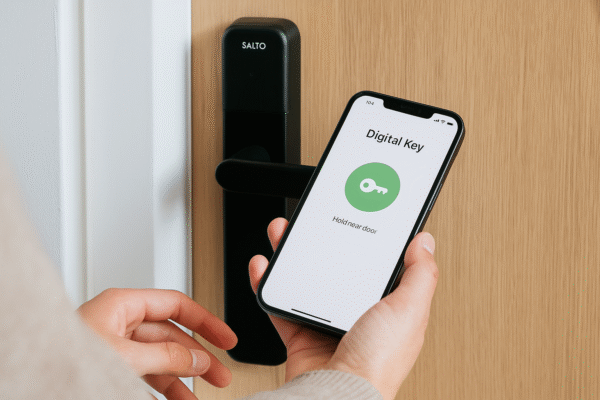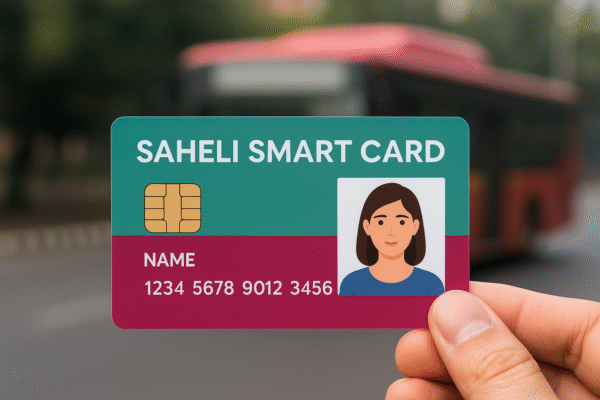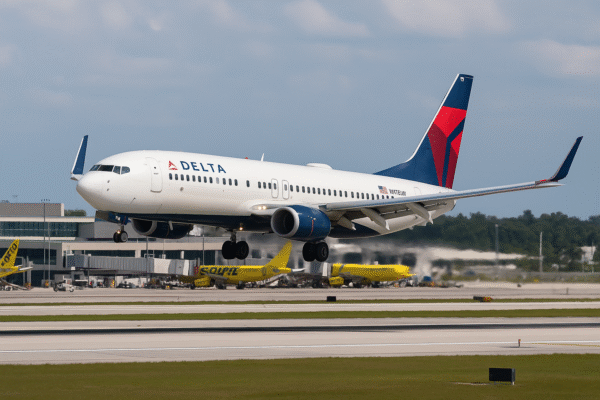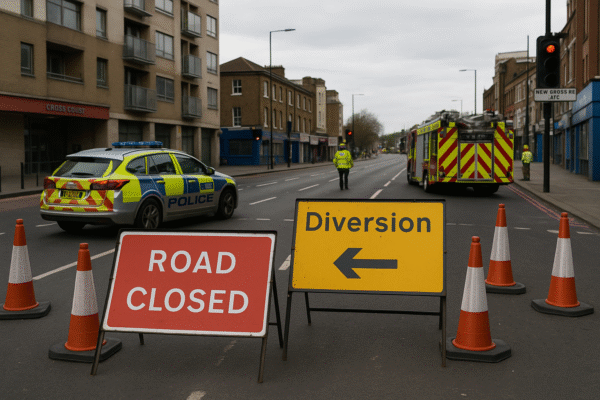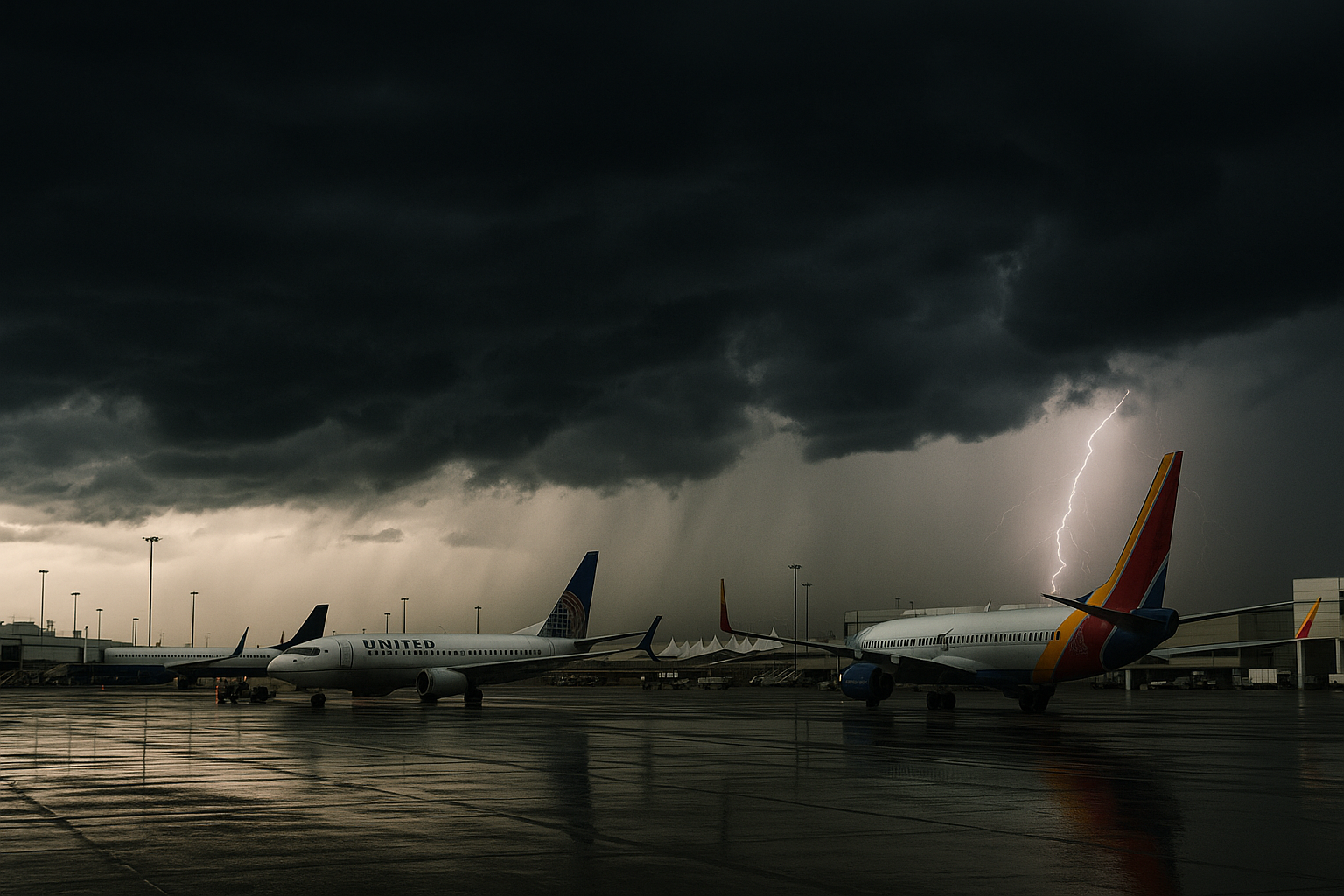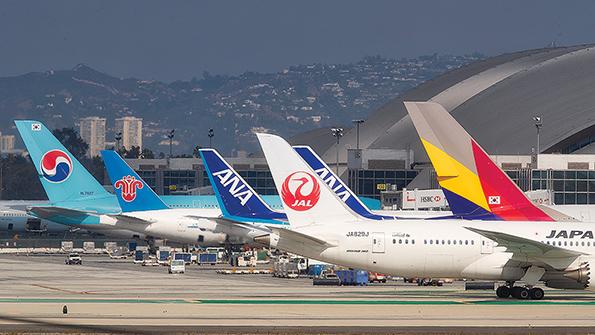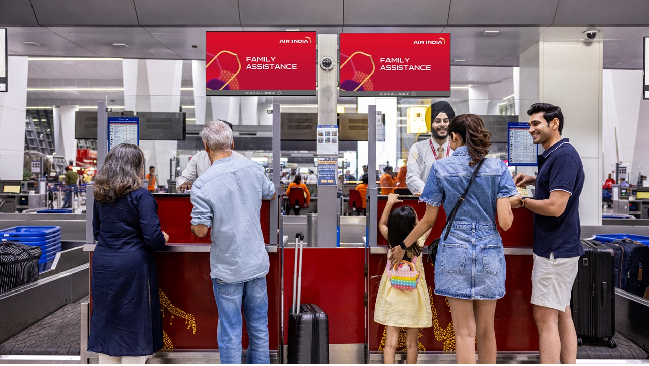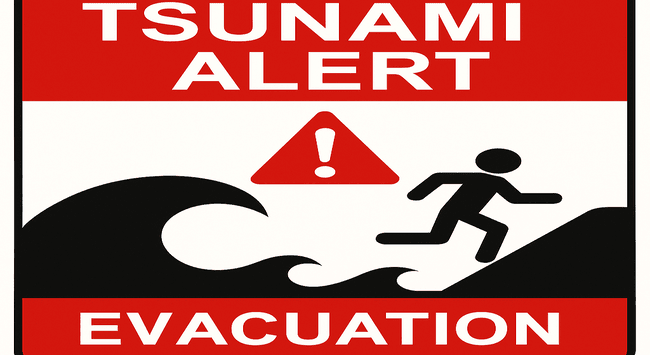Delta Emergency Diversion to Fort Myers Sparks Fresh Concerns Over Lithium Battery Safety in Air Travel
A Delta Air Lines flight from Atlanta to Fort Lauderdale was forced to make an emergency landing in Fort Myers, Florida, on Monday after smoke began to fill the cabin—triggered by a passenger’s malfunctioning personal electronic device. The incident, which occurred mid-flight, reignited concerns over the increasing risks associated with lithium-ion batteries aboard commercial aircraft.
Flight 1334’s Urgent Diversion
Delta Flight 1334 had departed from Hartsfield-Jackson Atlanta International Airport (ATL) en route to Fort Lauderdale-Hollywood International Airport (FLL). Roughly mid-way through the flight, the crew detected smoke emanating from a device in the passenger cabin. Following aviation safety protocols, the flight crew immediately diverted the aircraft to Southwest Florida International Airport (RSW) in Fort Myers for an emergency landing.
There were 185 passengers and crew on board, all of whom disembarked safely. No injuries were reported, though the scare left many shaken. Delta Air Lines later confirmed that the smoke originated from a personal electronic device powered by a lithium-ion battery.
Cabin Crew Response Averted Escalation
Quick action by the cabin crew prevented the situation from escalating into a full-scale onboard emergency. Flight attendants utilized specialized containment equipment, including fire-retardant bags designed specifically for overheating devices. The aircraft landed safely in Fort Myers, where it was promptly taken out of service for a full inspection by maintenance teams.
The FAA mandates that all commercial aircraft operating within the U.S. be equipped with fire-containment kits to manage potential battery-related incidents. Delta’s swift response in this case highlights the importance of having well-trained personnel and safety equipment readily available on board.
Lithium-Ion Batteries: A Growing In-Flight Hazard
Lithium-ion batteries are now a staple in modern air travel. From smartphones and laptops to wireless headphones and vape pens, travelers carry more rechargeable electronics than ever before. While generally safe, these batteries can overheat or ignite if damaged, improperly charged, or subject to manufacturing flaws.
According to the U.S. Federal Aviation Administration (FAA), there were over 60 recorded incidents involving lithium batteries aboard U.S. aircraft in 2023. These incidents range from overheating e-cigarettes to portable chargers catching fire mid-flight.
As such, the FAA has issued strict guidelines for flying with lithium batteries. Devices with rechargeable batteries should be packed in carry-on luggage, not checked baggage. Spare batteries must be stored with terminals covered, and passengers are advised to avoid charging devices during flights or leaving them unattended.
Delta’s Passenger Support and Follow-Up
After the emergency landing, Delta coordinated alternate transportation for passengers to reach their final destination. Most travelers were rebooked onto other flights to Fort Lauderdale the same day. A smaller group received overnight accommodation and continued their journey the next morning.
In a public statement, Delta Air Lines reassured customers that the aircraft involved would undergo comprehensive inspections before being cleared for service. “Safety is always our top priority,” a Delta spokesperson noted, emphasizing the airline’s commitment to proactive safety measures.
FAA Guidelines and Airline Safety Measures
In response to the rising number of in-flight battery incidents, the FAA continues to strengthen safety directives. These include banning loose lithium batteries in checked luggage, requiring battery terminals to be insulated, and ensuring that passengers are informed about what is and isn’t permitted aboard.
Airlines across the U.S., including Delta, are now equipping flight crews with specialized lithium fire suppression tools. Some carriers have even begun installing heat sensors and additional fireproof containment units within overhead bins.
Passenger Responsibilities in a Tech-Heavy Age
While airlines and regulators are doing their part, passengers also share in-flight safety responsibility. Here are a few essential tips:
- Pack lithium battery devices in your carry-on, never in checked luggage.
- Power off unused devices during the flight.
- Avoid charging electronics while onboard, especially when unattended.
- Use only manufacturer-certified chargers to prevent overcharging or overheating.
- Report any unusual heat, swelling, or smoke from a device to flight attendants immediately.
Airlines stress that smoke on an aircraft—regardless of its source—can escalate quickly due to the pressurized and confined environment of a plane cabin. Situational awareness and adherence to airline rules can help prevent similar incidents in the future.
Looking Forward: Travel Safety in the Digital Era
As air travel continues to evolve alongside technology, the risks posed by personal electronics cannot be ignored. This incident involving Delta Flight 1334 serves as a powerful reminder of how small devices can cause significant disruptions when proper safety protocols aren’t followed.
Passengers, airlines, and regulators must work together to uphold the highest standards of safety. With increased awareness and compliance, such mid-air scares can remain the rare exceptions rather than the rule.
Delta’s response, including the successful emergency landing and passenger care, demonstrates how coordinated safety procedures and crew preparedness can defuse even high-stress situations efficiently.
For more travel news like this, keep reading Global Travel Wire

